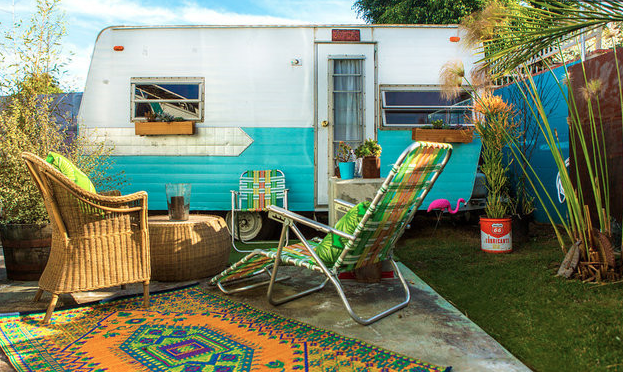
We've seen it all, from vacation rental mansions, to vacation rental RV's, a boat and even a treehouse.
Below, we share with you the top 10 things you must think about if you're considering turning your home into a short term vacation rental property.
Countless home and condo owners are now entering the multi-billion dollar vacation rental industry. While there are a variety of companies that have emerged to help property owners facilitate this process like ours, many are looking to save money at least when it comes to listing the property, with a do-it-yourself approach. Here is a look at ten vital steps that must be taken to prepare a home or condo for renting.

1. Research City Ordinances
This is the most important step of the process and should take place before anything else. Owners should ensure that a vacation home is legal within the city, collect any permits that are needed, and speak with their HOA if they have one as it may be against the rules in their community. We go into further detail about the short-term occupancy tax ramifications here.
OUR INSIDER TIP: Most municipalities that require a license for short term rentals also require a floor plan of the property. Our tip is that you can provide a floor plan by sketching the rooms out yourself with a straight edge. No need to hire an architect or other land designer for plans.

2. Maintenance and Cleaning
The initial maintenance and cleaning should be as thorough as possible in order to catch any major issues. Those that are renting homes will expect that all faucets, electronics, and appliances are working properly from the moment they step in the door.
OUR INSIDER TIP: Cleaning a home for rental purposes is much different than when it's done for you. Ensure you are paying attention to meticulously removing all traces of pet and pet dander. Also, just because the hole in the kitchen wall behind the refrigerator doesn't bother you, you have to fix it. Vacationers want to feel like they're at home. And even if they have holes in their walls, you can't.

3. Outsource Cleaning Services
While the initial cleaning can be done by homeowners, once business picks up a professional cleaning service may be necessary. A reputable cleaning service may even offer discounts for frequent customers running businesses like these, so a little extra research is the key to save extra money.
OUR INSIDER TIP: Be sure your cleaning staff is looking and checking in kitchen drawers to ensure everything is stored consistently. No vacation guests wants to open the silverware drawer and find scattered sandwich bags and dishwasher detergent pods combined with BBQ tongs.
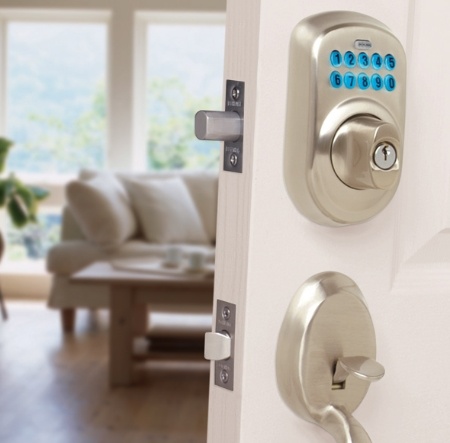
4. Decide On an Entry System
An electronic entry may be a great investment in the future, but most owners will want to start out with something a little more affordable. A simple lockbox nearby is often enough to keep the home safe as clients move in and out.
OUR INSIDER TIP: Real estate agent lockboxes (Masterlock, eg.) provide 4-code passwords and are attachable to either the front door, or can screw into the siding of your home. Keeping a backup key (or two) hidden on the property just in case a guest departs without returning the key, will solve future issues with the next arriving guest.

5. Create a Welcome Packet
For those that want to avoid calls in the middle of the night from a client, a simple welcome packet will be a necessity. These need to be nothing more than a few pages of information regarding the location of amenities, where to find extra linens, and the rules of the neighborhood so there are no misunderstandings.
INSIDER TIP: Leaving a token of your appreciation to an incoming guest can pay off dividends much larger than the cost of the welcome package itself. For starters, guests will be more likely to leave you a positive review. And, they may be more likely to return. Those two rewards far outweigh the cost of a traditional welcoming basket.
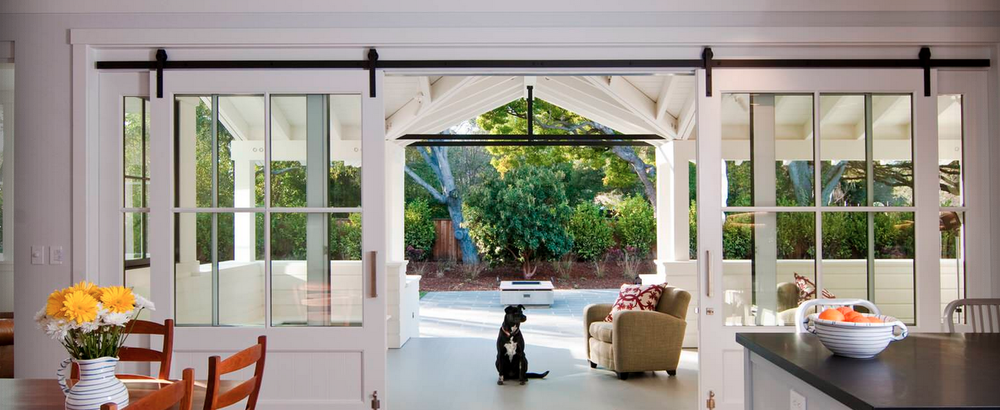
6. Photograph the Home and Area
High-quality photographs of the vacation home, the street, and the city are some of the best investments to make. These photos should always outline the best qualities of the property and surrounding area, but they should not be used to mislead guests in any way.
OUR INSIDER TIP: Show your space as how a guest might utilize the space. Open doors, place a laptop on a table, or leave a book on the nightstand. These images reinforce how at home your guests will feel when they're on your property.

7. Organize Property Information
Property information is going to be vital as travelers want to know exactly what they are getting for their money. They should understand how many beds they will have, the size of the beds, the layout of the rooms, amenities, and any other useful information.
OUR INSIDER TIP: Technology is becoming more and more common for this feature. Sure, having a well stocked binder of information on the coffee table is worthwhile, but before your guests arrive, you may think about creating a youtube.com video explaining key features of the home. You may also opt for an app that allows the guest to download the packet prior to arrival so they can interact with the material even when not at the property.

8. Research Rental Agents or Property Manager
Ahem. Cough Cough*. Deciding if a rental agent or property manager will be needed is a major decision for those that have started this process. While they are not always necessary, those that begin to see an increase in clients may want to research a rental company or agent to cut out some of the busy work. As the old adage goes, time is money. Renting out your home is a business and as we all know, businesses thrive when there are dedicated personnel attending to matters of their expertise. We've seen all too often homeowners who try to oversee the listing, inquiry, responding, booking, managing, key exchange, maintenance, availability themselves and while they save a few bucks at the end of the day, their stress, their free time and their energy is zapped.
OUR INSIDER TIP: Don't rely on your neighbor or your sister in law that lives three towns over. Please. Trust us. Dependability, responsiveness and professionalism go along way. I know we might be biased but we've seen it all, including a neighbor that had one too many that was called to the property to help with a broken key in the front door lock. Breaking into the home didn't exactly leave the best first impression with the guests.
Check out a company like this and see if they might be a good fit for you.
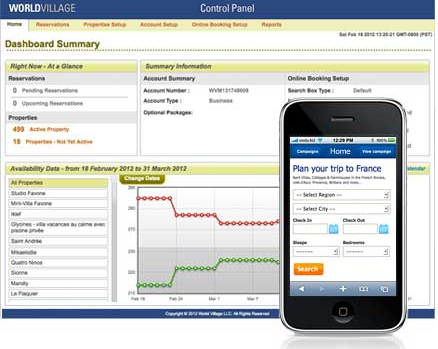
9. Purchase Rental/Landlord Software
Jotting down names and dates on a piece of paper simply won’t do as the business begins to grow. Instead, there is affordable software that can be used to input information and then automatically create receipts and schedules for all parties.
OUR INSIDER TIP: Depending on the web portal you decide to use for listing your property, this functionality can be greatly reduced. Some sites track everything from your calendar, to a breakdown of all fees, taxes, add ons, etc. Creating a master spreadsheet makes sense if you have your property(ies) on different websites and the data is not sharable. Such data points we recommend tracking include: length of time between inquiry date and booking date, booking date and arrival date, gross booking amount, net booking amount (how much in fees are coming off the top), how guest found you and even geographic breakdown of where your guests are visiting from. This will help in following years when you want to project your low and high seasons and what occupancy and nightly rates might look like.
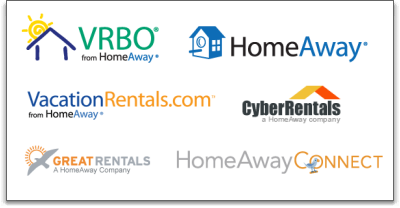
10. Market the Property
After everything else has been done, it is time to begin marketing the vacation rental home. Ideally, owners will want to look at companies, software, and websites specifically designed for this industry that offer services for a flat one-time or yearly fee.
OUR INSIDER TIP: Sites that require an upfront fee (Homeaway.com and VRBO.com, e.g.) may seem tough to swallow at first, but they can be worth their weight if your home is commonly booked using these websites. For example, if you list your home on VRBO for the year, and go with their most expensive listing package ($1000), and your home rents 15x at an average of 7 days at an average of $300/night, the VRBO listing fee will equal 2%. Compare this with a site like airbnb.com in which you just pay 3% of any booking they generate (and nothing up front), that will cost you $1575 by years end.
If you liked this post then please use the email block below to sign up for our monthly newsletter that focuses on issues ranging from the latest news surrounding the online vacation home community, tax and other laws that might impact your property, optimizing your listing so you rank higher and increase your inquiries and bookings and even a soon-to-be-released feature covering the horror stories that property owners have shared with us. Names redacted of course.

 About this Author: Ryan Danz, Author of "Jiu Jitsu Jurisprudence" (ABA Publishing, 2013), and 3rd place winner of Solas' Award (Category: Travel & Sports, 2013) is the founder of Air Concierge, Inc. and a California licensed attorney (State Bar of California 249223).
About this Author: Ryan Danz, Author of "Jiu Jitsu Jurisprudence" (ABA Publishing, 2013), and 3rd place winner of Solas' Award (Category: Travel & Sports, 2013) is the founder of Air Concierge, Inc. and a California licensed attorney (State Bar of California 249223).
.png?width=1000&height=627&name=air+concierge-logo-black+(1).png)